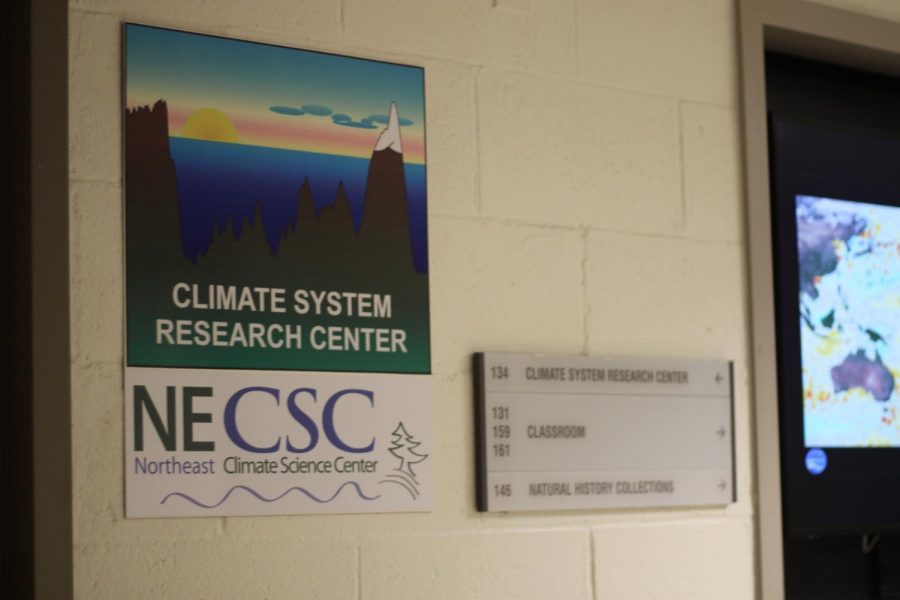The U.S. Department of the Interior renewed its support for a climate research center at the University of Massachusetts earlier this month in the form of a five-year, $4.5 million grant, according to a news release from UMass News & Media Relations.
The Northeast Climate Adaptation Science Center, one of eight of its kind, has been headquartered at UMass since 2012, after the campus won the rights to host the facility and its research for five years, which was later extended to seven years.
Richard Palmer, the co-director of the NE CASC, said the facility’s “primary goal is to keep resource managers aware of new advancements in climate science.”
The center researches adaptations amongst plants and animals and provides information to groups ranging from the U.S. Fish and Wildlife Service, to the Forest Service, to their state-level equivalents, Palmer said.
“We look at general climate forecasts for the region and try to transfer that into things that our resource managers can understand,” he said.
Over the last seven years, the CASC has investigated changes in bird species and their migration, how fish adapt to increasing river temperatures and how invasive species impact new environments, amongst many other projects, Palmer described.
Bethany Bradley, one of the center’s principal investigators, pays especially close attention to the invasive species work. Three years ago, she helped start the Center’s Regional Invasive Species and Climate Change Management (RISCC) project.
Fighting more invasive species stems from having a warmer planet and longer growing season, Bradley said.
Recognizing that land and resource managers needed more information, the center developed the RISCC, which helps the managers prepare for invasive species they may encounter in the future.
“We’ve had a series of workshops and symposia to bring together scientists and managers,” Bradley described. Every other week, they also put together a synthesis of recent research, which they send to a group of about 300 managers in order to keep them informed on relevant developments.
Many invasive species are brought into new areas by people who enjoy them as pets or in gardens. Because of this, one big goal of the RISCC has been lobbying state governments to move certain plants and animals onto prohibited species lists.
“We presented our list to the State of New York and the state recommended putting several species on their list,” Bradley said. “We’re trying to do the same thing in New England.”
The center often faces challenges centered around the evolving nature of climate science, Palmer said. “People are interested in specifics,” such as how the planet will warm and when it will warm, he noted.
The difficulty, Palmer continued, is that there are roughly 35 well-established climate models run by different countries.
“We try to help simplify the information that’s available and point [resource managers] to what we think is the best information and help them with strategic actions they can take,” he said.
Palmer also noted the contributions that UMass has made to the center to keep its mission on track. With the center facing slight cuts to its federal grant, the University will provide four fully-funded research assistantships for PhD students — something the center would not otherwise have been able to achieve.
“The university has been very supportive of the center,” Palmer said.
Despite its title as the “Northeast” location of the CASC, the region has a liberal definition of the American Northeast. The UMass center covers 21 states, from Missouri to Maine, as well as Washington, D.C.
“We have about 42 percent of the US population,” Palmer said.
The CASC headquarters at UMass also works with a six-member consortium of universities, which includes the Universities of Vermont, Missouri and Wisconsin, Cornell and the College of Menominee Nation in Keshena, Wis.
Will Katcher can be reached at [email protected] and followed on Twitter at @will_katcher.




















